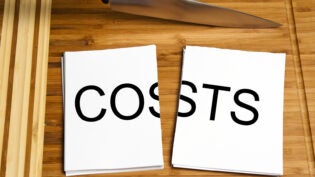Can You Power Your Business with Renewable Energy?
By: Andrew Deen

Here’s something you need to know about your next group of customers, Generation Z: they’re worried about the environment.
In a 2017 study, 89% of Gen Z participants indicated that they would prefer to buy from an environmentally or socially conscious company over competitors. They’re committed to keeping our planet sustainable, and they’re willing to speak with their dollars.
So what are many companies, small and large alike, doing in response? They’re not just using the words “going green,” they’re switching up the way they power their offices and storefronts by adopting renewable energy solutions.
Why Switch?
Climate change is creating an increase in global temperatures, averaging 1.4 degree Fahrenheit since 1880. This is increasing rainfall, natural disasters, and other problems like melting polar ice. Both businesses and individuals have the responsibility of contributing to the health of the planet in whatever way they can. Switching to renewable energy is a great way for businesses to contribute.
Aside from the environmental benefits businesses give back when they switch to clean, renewable energy, it’s just good business. Solar panels, the most common options for commercial clean energy, can save companies a significant amount of cash on energy costs. In 2015, marketplace data from EnergySage showed that commercial cost reductions amounted to an average of 75%. If your utility bills have become a hardship, solar panels could be a great way to save money. Though regulations are often in flux, businesses can also take advantage of deductions and credits on buying the panels.
Another aspect to consider is that the U.S. government will soon be requiring businesses and corporations to cut back on their green-house gas emissions. Of course, the government is giving benefits for making this change, offering some impressive tax credits for going green. There are numerous tax deductions for businesses of all sizes, but if you’re looking to cut back on tax expenses then going green is definitely something to consider.
Getting Started
You may be on board with the great benefits of switching to renewable energy, but first you need to evaluate whether or not it will be possible for you. Before you consider your options, it’s important to look at what your current utility consumption and costs are so you can make comparisons.
Check with your utility company—they may offer renewable energy as an option. Buying straight from a utility company is the simplest way to make the switch, but you may want to think about generating your own energy instead.
Are Solar Panels Possible?
Since solar energy is the most convenient choice for small businesses to self-generate, most of the considerations for creating sustainable energy surround buying and installing solar panels. Solar panels are cost-effective and pay for themselves in a fairly short timeframe, but there are some challenges that can go along with their purchase and installation.
The biggest stumbling blocks in installing solar panels are typically up-front costs, suitability of property, and landlord approval. Sometimes, credits can offset the costs, but the panels can be a big investment for a small business.
In addition, many commercial properties just aren’t able to effectively use solar panels– The National Renewable Energy Laboratory has published estimates that upwards of 48% of commercial buildings have unsuitable roofs for solar panel installation. Beyond that, small businesses that rent their buildings must get landlord approval—and ensure that ownership of the panels is clearly defined.
These obstacles aren’t always insurmountable, but they could be the deciding factor on whether your business can generate its own energy or if you’ll have to buy from renewable energy facilities.
A Powerful Message
Businesses hold a lot of clout in our society, big and small when they take a sincere stand on something. Companies can’t give lip service to sustainable initiatives and expect to be rewarded, they have to take action.
Switching to renewable energy sends a powerful message to your customers, community and lawmakers: that you are committed to maintaining the health of the planet for everyone’s well-being. That’s a message that resonates with just about everyone, and can be a boon to your reputation.
Renewable energy is the future—we only have enough natural gas to last about 55 years, and coal for around 188 years, neither of which are healthy for the warming planet. Becoming involved with renewable energy now lays the groundwork for a healthy and sustainable future.
2659 Views













